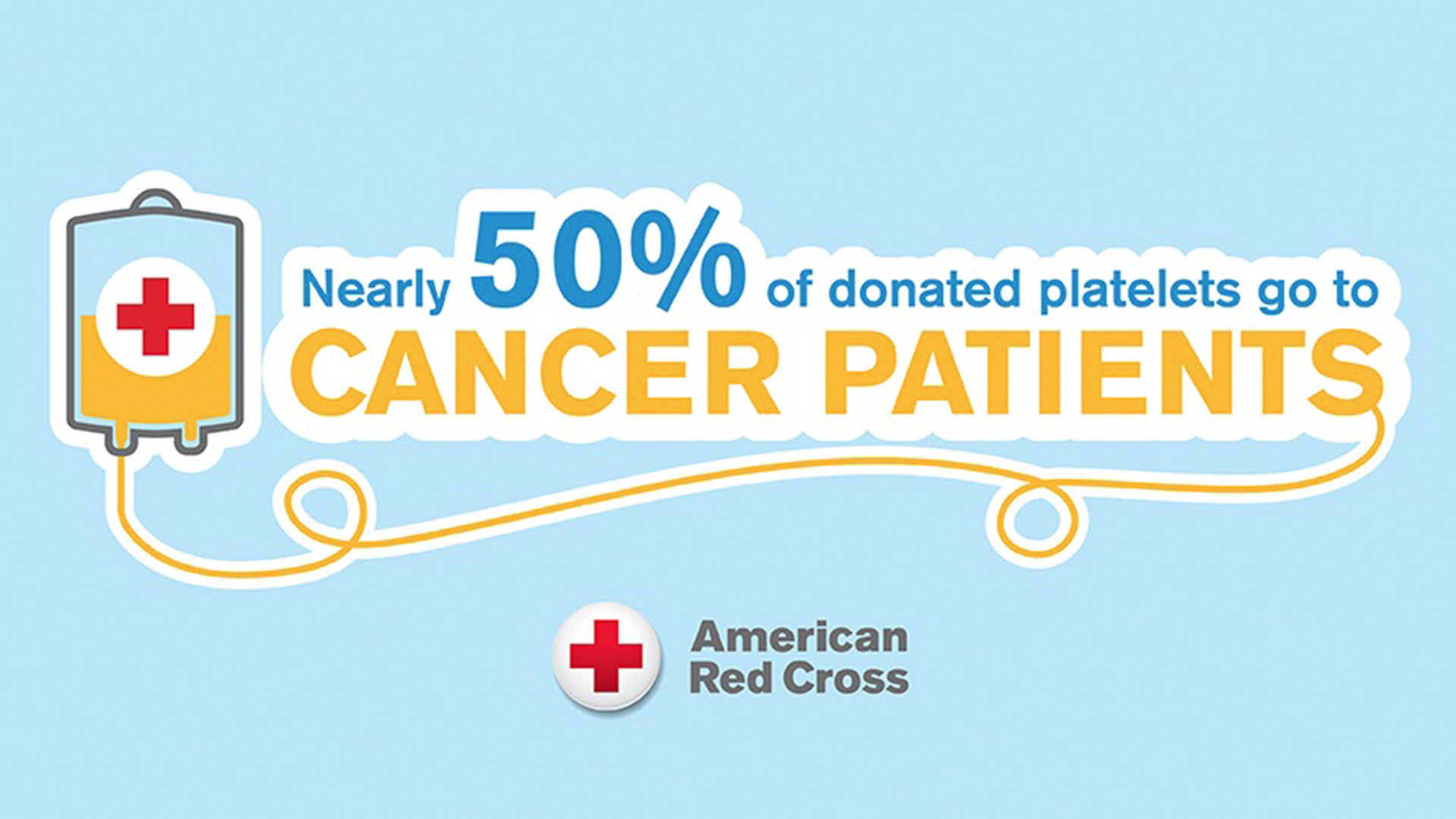
October is Breast Cancer Awareness Month — a time to raise awareness, honor survivors, support those in treatment and remember those we've lost. It’s a month filled with stories of courage and resilience and a reminder that the fight against cancer continues every day.
While that fight can feel overwhelming, there’s one powerful way anyone can help: donating blood and platelets. Cancer patients often rely on transfusions during treatment, especially when chemotherapy affects their ability to produce healthy blood cells. Your donation can provide strength, hope and healing — and may even help save a life.
Donating Platelets
Platelets are tiny cells in your blood that form clots and stop bleeding. For millions of Americans, they are essential to surviving and fighting cancer, chronic diseases and traumatic injuries. In fact, every 15 seconds someone in the U.S. needs platelets.
Donating platelets is a bit different than donating whole blood. A typical blood donation takes about one hour, while a platelet donation takes 2-3 hours and must be done at a Blood Donation Center by appointment.
During the process, blood is drawn from one arm and passed through an apheresis machine, which extracts the platelets. The remaining blood components are then returned to you through the other arm.
Because platelets must be used within five days of donation, new donors are always needed. People with blood types A positive, A negative, B positive, O positive, AB positive and AB negative are encouraged to donate. You can donate platelets up to 24 times per year.
Why Blood And Platelet Donations Matter
You might not realize how vital a blood or platelet transfusion can be in cancer treatments. Nearly 50% of all donated platelets and 25% of all donated blood products go directly to cancer patients.
Treatments like chemotherapy and radiation can severely reduce red and white blood cell counts and lead to complications like anemia, infection and difficulty clotting. Chemotherapy can also damage bone marrow, which is where platelets are produced. When platelet levels drop, the body’s ability to form clots is compromised — even small cuts or bruises can lead to dangerous bleeding.
Patients with leukemia, lymphoma and other blood cancers often depend on frequent transfusions to survive. Those undergoing bone marrow transplants or major surgeries to remove tumors also require blood products to aid in recovery.
Be A Cancer Kicker
Because so many cancer patients rely on platelet donations, donors like Bucks County resident Gary LaSasso are often called Cancer Kickers.
When Gary’s young cousin was diagnosed with Leukemia four years ago, he wanted to help in any way he could.
“I knew that he was going to be in need of constant platelets during his treatments, and I thought I would do my part to help refill the platelet population – replenish the platelets,” he said.
That desire to help turned into a personal mission. Gary now donates platelets 18 times a year.
Initially, he planned to donate once a month – until a conversation in the donor canteen changed his mind.
“I sat down in the canteen after one of my donations and another donor thanked me for my donation. I thought it was kind of strange, why is a donor thanking a donor?”
Gary asked the donor why? Her answer stuck with him.
“She said, ‘We just moved from Chicago. Our son is undergoing clinical trials at CHOP in Philadelphia and if he doesn’t get platelets every week he’s going to die. It’s people like you who donate that save his life.’ So, at that point I was like I can’t give once a month. I have to give more.”
Gary doesn’t just donate; he inspires others to join him.
“My 18 is one thing but if I can get two or three other people to give 10 times, that’s many more than I’m giving, so I like to use social media to spread the word and hopefully get more people.”
Thinking about giving it a try? Gary has some advice.
“Do it once. Join the Facebook group of platelet donors of the Red Cross, and when you’re around a community and you understand the impact that you’re making, you won’t just do it once. You’ll give a lot more.”
Ready To Donate
To schedule an appointment, visit RedCrossBlood.org, use the Red Cross Blood Donor app or call 1-800-RED CROSS (1-800-733-2767).
---------------
- Written by Samantha Antenucci, Jenny Farley and Alana Mauger
Support all the urgent humanitarian needs of the American Red Cross.
Find a drive and schedule a blood donation appointment today.
Your time and talent can make a real difference in people’s lives. Discover the role that's right for you and join us today!